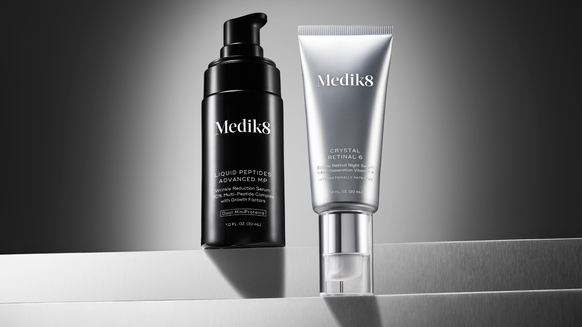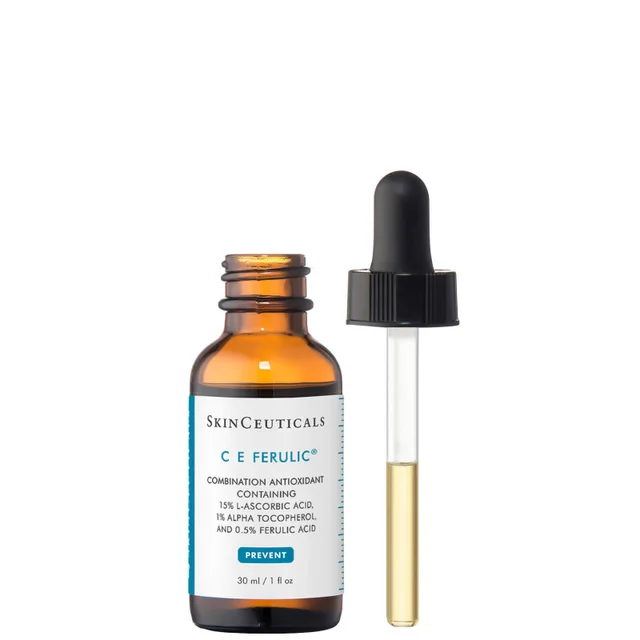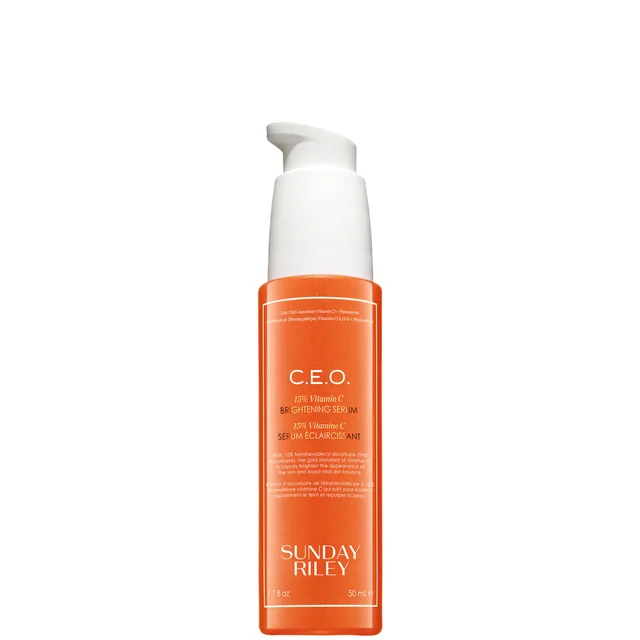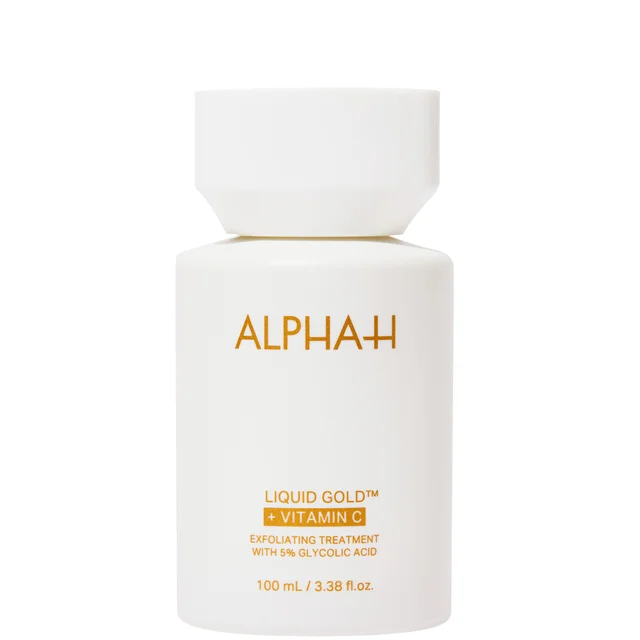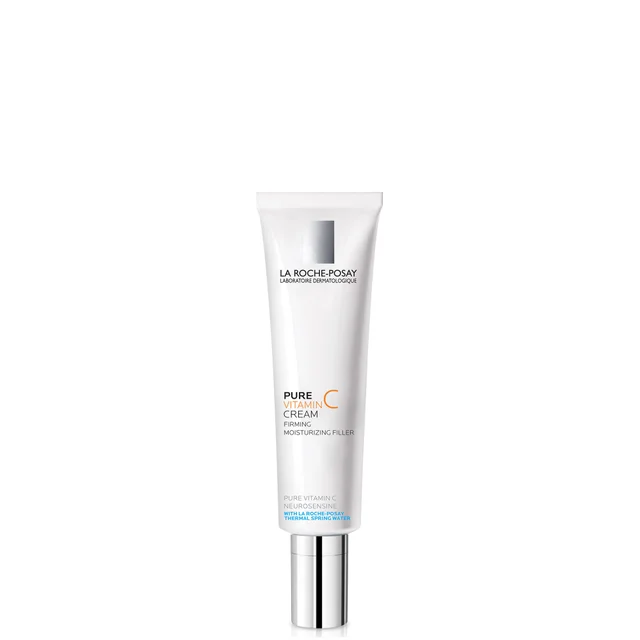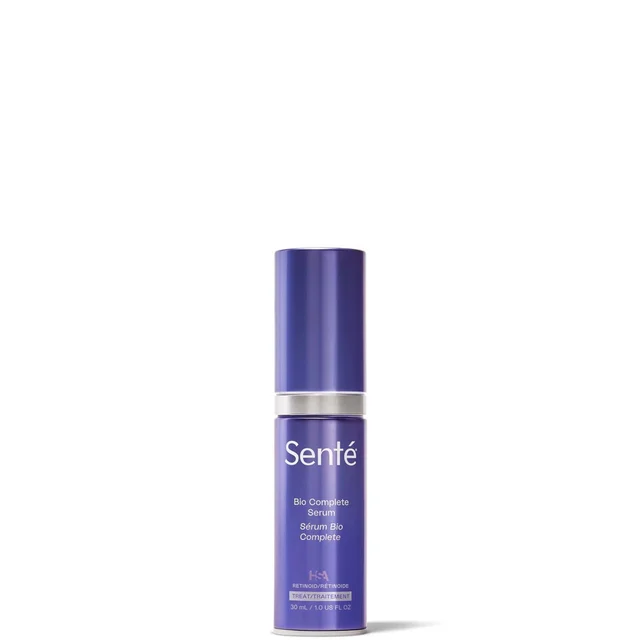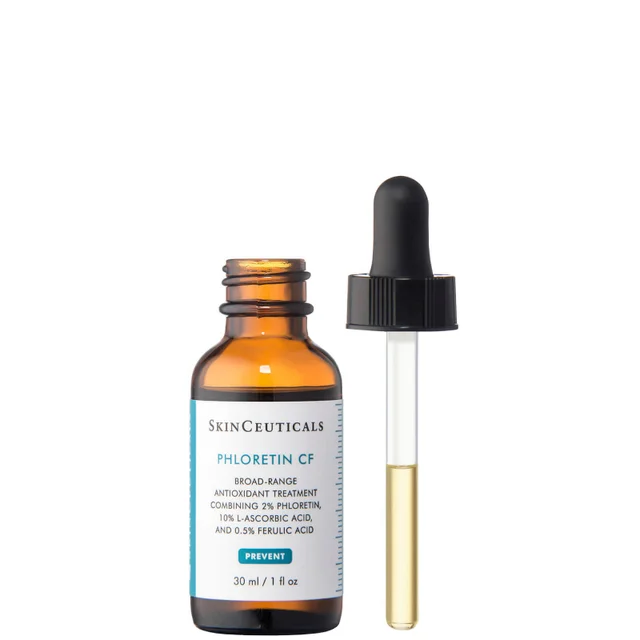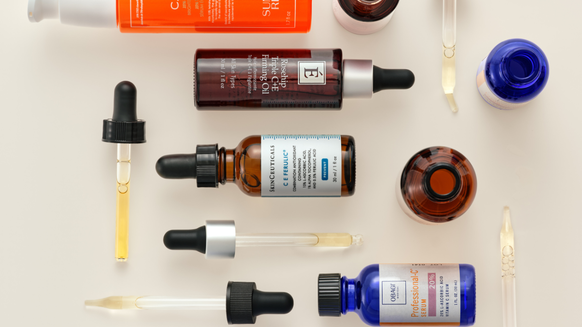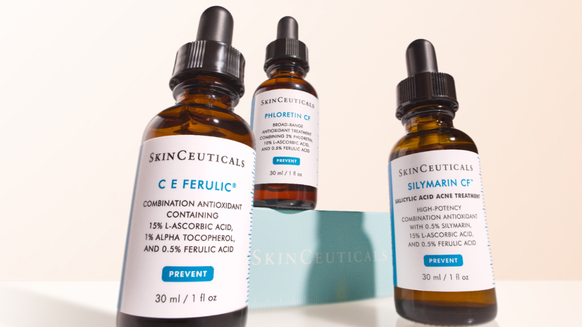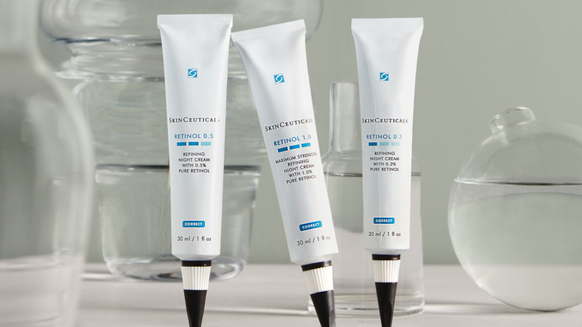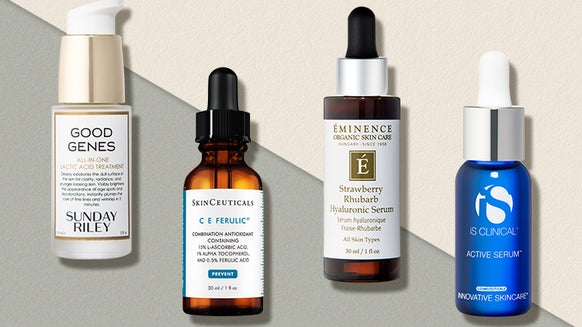Vitamin C for Skin: A Dermatologist Guide for Glowing Skin
If we’re going to rank skincare ingredients in tiers, it’s safe to say that no two lists are going to look exactly alike. And that’s totally fine, given how unique and specific each skin’s needs are. However, we can also agree on a few things: synthetic fragrances and harsh chemicals are a no-go while vitamin C for skin is definitely top-tier material.
From boosting collagen production to protecting the skin from environmental damage, vitamin C comes armed with decades of scientific studies that prove why it deserves the spotlight. But as powerful and essential as it is, vitamin C can also be finicky and tricky to use--especially if you’re not sure about how it works or how to tailor it to your skin’s needs. To break down everything you need to know about vitamin C, we spoke with an expert to help us answer the whys and hows surrounding this skincare wonder.
Meet the Expert
Dr. Connie Yang - Board-certified dermatologist and member of Dermstore's Medical Advisory Board
Derm Insights
What it is: An antioxidant that is essential for overall health and most importantly, neutralizes free radicals from environmental stressors including UV damage. Skin Benefits: Brightening, Boosts Collagen, Anti-Aging Targeted Concerns: Post-Acne Dark Spots, Fine Lines, Loss of Elasticity Common Product Type(s): Serums Dermatologist-Recommended: Yes
In this Article
- What is Vitamin C?
- What Does Vitamin C Do for the Skin?
- Types of Vitamin C
- Benefits of Vitamin C
- Is Vitamin C Safe for All Skin Types?
- How to Use Vitamin C
- Does Vitamin C Help Acne?
- Potential Side Effects
- Shop the Best Vitamin C Skin Care
- FAQs
- The Bottom Line
What is Vitamin C?
An immune system booster, most of us turn to vitamin C to fight off colds and improve the body’s defenses against disease-causing viruses and bacteria. And in skincare, it takes on a similar role. A potent antioxidant, vitamin C prevents environmental stressors from wreaking havoc in your skin. It supports skin health at a cellular level by quenching free radicals and preventing oxidative stress that lead to premature skin aging.
While the body doesn’t produce vitamin C on its own, it can be found in high concentrations in the skin. That’s because vitamin C from food sources—like citrus fruits, kiwis, papayas, berries, and vegetables like broccoli—is transported from the bloodstream to the skin, where it works hard to help the skin produce more collagen while defending it from pollution and ultraviolet rays. However, several factors, including aging, cause vitamin C levels in the skin to drop, making it essential to give your skin a much-needed vitamin C boost from topical skincare products.
Featured product: SkinCeuticals C E Ferulic
What Does Vitamin C Do for the Skin?
“Vitamin C has numerous benefits for the skin,” says Dr. Connie Yang, board-certified dermatologist and member of Dermstore’s Medical Advisory Board. “As an antioxidant, it combats free radicals to help prevent premature aging and sun damage. It can also help boost collagen production and reduce hyperpigmentation.”
In other words, think of vitamin C as your skin’s very own bodyguard slash personal assistant. It’s a tireless protector that keeps your skin safe from the sun, pollution, and other external aggressors while improving how your skin looks, feels, and functions by stepping in to restore and repair damage, fade dark spots, and enhance your overall glow.
Types of Vitamin C
As we all know, not all skincare ingredients are created equal, and the same can be said for vitamin C. Depending on the type of vitamin C in your products, you’ll notice a difference in its effectivity, the speed by which it delivers results, and in your skin’s tolerance. That’s because some forms of vitamin C are more stable than others, making them less prone to degradation and significantly improving their functions and impact on your skin. Other vitamin C types work faster and have a higher potency but may come with a greater risk of irritation. On the other hand, gentler forms could take longer to deliver desired results but are much friendlier to sensitive skin and vitamin C newbies.
Wondering which type of vitamin C is best for your skin? Here is a list of the most common vitamin C forms found in skincare products, according to Dr. Yang.
L-Ascorbic Acid: Also known as pure vitamin C, l-ascorbic acid is the most bioavailable form of vitamin C, which means it’s effortlessly absorbed and harnessed by the skin. The downside, Dr. Yang says, is that it oxidizes easily when exposed to air and sunlight. And because it’s highly acidic, using higher concentrations can also disrupt the skin barrier and cause irritation. Sodium Ascorbyl Phospate: This form of vitamin C is more stable and has an added antibacterial property, which makes it perfect for those with acne-prone skin, says Dr. Yang. However, it needs to undergo a process of conversion (to ascorbic acid) before it can be used by the skin, making it less potent, she adds. Tetrahexyldecyl Ascorbate (THD): The vitamin C you need if you have sensitive skin, tetrahexyldecyl ascorbate is the gentlest and one of the most stable forms of vitamin C, says Dr. Yang. This fat-soluble form penetrates the skin deeply and effectively with little to no risk of redness, sensitivity, and irritation. Magnesium Ascorbyl Phospate: With its hydrating and anti-inflammatory effect, this form of vitamin C works best for dry or sensitive skin that needs a gentle touch.
Benefits of Vitamin C
As one of the most hardworking and multitasking skincare ingredients, vitamin C ticks all the boxes when it comes to enhancing and protecting your complexion. Dark spots and post-acne marks? Vitamin C reduces melanin production. Fine lines becoming more noticeable? Let vitamin C smooth them out. Dull and tired-looking complexion? It can give you that lit-from-within glow. Want better protection from the sun? Vitamin C helps your SPF do its job even better. Needless to say, if you’re dealing with some of the most common and stubborn skin concerns, vitamin C’s got you covered.
“Vitamin C is amazing for brightening the skin and fading dark spots. It’s great for patients with melasma or post-acne marks,” explains Dr. Yang. “It can also boost collagen to help with fine lines and elasticity. Most importantly, it helps neutralize free radicals from environmental stressors, including UV damage.”
Is Vitamin C Safe for All Skin Types?
While many users incorporate vitamin C in their skincare routines without a hitch, some skin types may find it irritating. However, that doesn’t mean you can’t make the ingredient work for you. The trick, according to Dr. Yang, is to start low and slow with a form that’s best suited for your skin type.
“Choosing the right form of vitamin C is important as certain forms are more irritating than others,” she explains. That’s because not every skin type behaves and reacts the same way, so paying close attention to how your skin feels after application is extra important. If you want to play it safe, make sure to patch test or consult with your dermatologist.
How to Use Vitamin C
Choosing the right form of vitamin C is one thing. Knowing how to use it properly to unlock its full potential and avoid irritation is another. Because vitamin C is first and foremost a skin defender, it’s best to make it a part of your daytime routine, says Dr. Yang. “It should be used in the morning to work in conjunction with your sunscreen to protect the skin and fight off free radical damage,” she explains.
How to Apply vitamin C serum: After cleansing and toning and allow it to fully absorb before layering your moisturizer. And because sunlight can trigger vitamin C oxidation, make sure to apply sunscreen as your final step. Lastly, store your vitamin C products away from the sun and keep them tightly sealed to prevent it from oxidizing.
Does Vitamin C Help with Acne?
While vitamin C isn’t an acne-banishing superhero the way salicylic acid, retinol, and benzoyl peroxide are, it can take on a supporting role to help alleviate some common acne-related concerns. Consistent use of vitamin C can speed up healing and stimulate skin renewal to help fade post-breakout dark spots and blemishes, and its antioxidant properties can relieve some of the inflammation and irritation that comes with acne.
Potential Side Effects
Although vitamin C is undoubtedly a skincare hero, it’s not always a fuss-free, apply-and-forget type of ingredient. Choosing too high concentrations, mixing it with the wrong ingredients, and using an oxidized serum can quickly escalate to skin drama and leave you with a complexion that looks red, flaky, and dry and feels tingly and extra sensitive.
“Some more potent forms of vitamin C can be irritating, especially above 15 to 20 percent. L-ascorbic acid, while most effective, is also more irritating because of its lower pH,” explains Dr. Yang.
Shop the Best Vitamin C Skin Care Products
1. Paula's Choice Super C Duo
Talk about a match made in skincare heaven! This vitamin C-powered, fast-absorbing pair features a high-performing serum and a broad-spectrum SPF 50 sunscreen for the ultimate all-day protection against sun and environmental damage while working together to target dullness, improve fine lines and wrinkles, and brighten and prevent discoloration.
Key Ingredients: Vitamin c, Ferulic Acid, Ergothioneine, Acetyl Zingerone, Amino Acids
Skin Type: Combination, Dry, Oily, Normal
Skin Benefit(s): Anti-aging, brightens dark spots, improves skin tone, broad-spectrum SPF 50 defense, lightweight and hydrating
Beauty Insider Tip: Apply the serum up to twice daily all over face and neck, including the eye area. Finish off with the sheer sunscreen at least 15 minutes before sun exposure.
2. Sunday Riley C.E.O. 15% Vitamin C Brightening Serum
When it comes to dullness, dark spots, and discoloration, you need a vitamin C authority that doesn’t back down. Infused with 15 percent advanced vitamin C, this serum instantly improves color and texture issues in the skin while diminishing signs of aging, leaving you visibly firmer, brighter, and more youthful-looking skin.
Key Ingredients: Tetrahexyldecyl Ascorbate, Squalane
Skin Type: All skin types
Skin Benefit(s): Brightens dark spots and discoloration, improves tone and texture, boosts radiance, firms and plumps skin
Beauty Insider Tip: This serum is formulated with the gentlest form of vitamin C, so you can safely pair it with Sunday Riley’s retinol-infused Luna Sleeping Night Oil.
3. Eminence Organic Skin Care Rosehip Triple C+E Firming Oil
Revitalizing, refreshing, and re-firming, this multitasking anti-aging and brightening face oil features a luxurious blend of botanicals that hydrates, soothes, and nourishes the skin. Plus, its vitamin C and E combo provides supercharged antioxidant protection against environmental stressors, inflammation, and free radical damage.
Key Ingredients: Rose Hip Oil, Vitamin C, Vitamin E, Jojoba Oil
Skin Type: Combination, Mature, Normal
Skin Benefit(s): Relieves redness, dryness, and itching; diminishes fine lines, wrinkles, and sagging; brightens and evens skin tone; protects from UV rays and pollution
Beauty Insider Tip: This face oil is designed to fit seamlessly into your existing routine and amplify the benefits of your skincare favorites.
4. Alpha-H Liquid Gold Exfoliating Treatment with Vitamin C
We wouldn’t normally recommend pairing vitamin C with AHAs, but this cult-fave formula has found a way to combine the exfoliating power of glycolic acid with the brightening effects of vitamin C in one bottle. Thanks to its unique low-pH delivery system, these skin-renewing ingredients can now work together to improve your skin’s elasticity, tone, texture, and luminosity while keeping environmental stressors at bay.
Key Ingredients: Vitamin C (3-O-Ethyl Ascorbic Acid), Glycolic Acid, Tazman Pepper, Silk Proteins
Skin Type: All skin types
Skin Benefit(s): Diminishes fine lines and wrinkles, refines pigmentation, revitalizes dull skin, improves uneven tone and texture
Beauty Insider Tip: When using highly potent ingredients together, it’s important to not overdo things so as not to overwhelm and irritate your skin. For best results, use this serum alternately up to three nights a week.
5. BeautyStat Universal C Skin Refiner
With its advanced, stable, and gentle formula, this serum lets your skin enjoy everything that makes l-ascorbic—the purest, most bioavailable form of vitamin C—a true brightening and anti-aging powerhouse without the redness, dryness, and irritation.
Key Ingredients: L-Ascorbic Acid 20%, Hyaluronic Acid, Ceramides, Peptides, Pomegranate Sterols
Skin Type: All skin types
Skin Benefit(s): Firms and tightens, reduces fine lines and wrinkles, inhibits pigmentation and fades dark spots, antioxidant protection
Beauty Insider Tip: Although this serum is formulated for all skin types, you may feel a slight tingling sensation as you blend the product into your skin. But not to worry—this is normal due to the high concentration of vitamin C. If you have extra sensitive skin, start with every other day application until your skin has fully adapted to its potency.
6. Allies of Skin 35% Vitamin C Perfecting Serum
This serum boasts of the purest, most stable form of l-ascorbic acid, providing superior antioxidant, brightening, and anti-aging benefits to all skin types. With 35 percent vitamin C, it’s a true powerhouse that delivers unmatched noticeable results for skin that needs a hardworking ally to combat environmental damage, fade dark spots, and prevent fine lines and wrinkles.
Key Ingredients: 25% Ethylated L-Ascorbic Acid, 10% Tetrahexyldecyl Ascorbate, Superoxide Dimustase, Glutathione
Skin Type: All skin types
Skin Benefit(s): Provides superior antioxidant protection, intensely brightening, stimulates collagen production, speeds up cell renewal
Beauty Insider Tip: Get the most out of this waterless, quick-absorbing serum by using it in the morning to boost the effects of all your SPF products and applying on the eye contour to instantly brighten and refresh tired-looking eyes.
7. La Roche-Posay Pure Vitamin C Cream Moisturizer
With vitamin C as its star, this non-greasy, velvety moisturizer is all you need to visibly plump, hydrate, and protect your skin from the daily assault of sun damage and pollutants.
Key Ingredients: Pure Vitamin C (L-Ascorbic Acid), Hyaluronic Acid, Madecassoside
Skin Type: All skin types
Skin Benefit(s): Plumps and firms, reduces fine lines and wrinkles, improves and instantly blurs uneven skin tone
Beauty Insider Tip: Lightweight and hydrating, apply this cream as part of your daily morning routine for all-day hydration and protection or use in the evening for your nighttime skin pampering.
8. SENTE Bio Complete Serum
A serum unlike any other, this highly advanced skincare wonder not only successfully combines the unmatched benefits of retinol and vitamin C in one formula, it also does so in the gentlest, most sensitive skin-friendly fashion. The result? A one-of-a-kind breakthrough formula that renews, brightens, and preserves skin while giving it the best defense against environmental damage.
Key Ingredients: Retinol, Vitamin C, Peptides, Heparan Sulfate Analog
Skin Type: All skin types
Skin Benefit(s): Minimizes fine lines and wrinkles including expression lines, restores and brightens complexion, enhances tone and texture, superior antioxidant protection
Beauty Insider Tip: This nighttime serum is formulated to comfort, heal, and restore all skin types that’s coping with sun and environmental damage.
9. SkinCeuticals Phloretin CF
No other brand does vitamin C serums quite like SkinCeuticals. With their wide range of cutting-edge formulations, SkinCeuticals’ vitamin C serums are expertly crafted to target your skin’s most stubborn concerns. With Phloretin CF, hyperpigmentation and discoloration become a thing of the past, thanks to its advanced blend of ferulic acid and pure vitamin C that neutralizes free radicals, improves cell turnover, and effectively lightens signs of discoloration. All this while providing anti-aging effects and antioxidant defense for complete skin protection and rejuvenation.
Key Ingredients: 2% Phloretin, 10% Pure Vitamin C, 0.5% Ferulic Acid
Skin Type: Normal, Oily, Combination, Mature
Skin Benefit(s): Advanced environmental protection, brightens and evens skin tone, improves discoloration, refines fine lines and wrinkles
Beauty Insider Tip: Once daily, apply four to five drops of the serum all over the face for up to 72 hours of vitamin C protection.
FAQs
Does Vitamin C Help with Dark Spots?
Absolutely! In fact, vitamin C doesn’t just help fade dark spots, it’s one of the best ingredients you can use to address hyperpigmentation. According to Dr. Yang, vitamin C works by inhibiting or slowing down the production of melanin, eventually refining the appearance of uneven patches, scarring, and dark spots over time—and all without bleaching or the risk of irritation.
Is Vitamin C Good to Use Every Day?
If you want to see noticeable results, then using vitamin C daily is where you get the real payoff, says Dr. Yang. By using vitamin C every day, especially in the morning and paired with sunscreen, your skin can reap its maximum benefits: stronger skin barrier, improved tone and texture, enhanced radiance, and better protection from environmental stress.
What Shouldn’t You Mix with Vitamin C?
While vitamin C is a skincare staple, it doesn’t always play well with other workhorse ingredients and treatments. Ingredients like benzoyl peroxide and retinol can greatly increase the risk of irritation when used with vitamin C. Pairing it with AHAs and BHAs can also deactivate and degrade vitamin C and disrupt the skin’s pH balance because of these ingredients’ high acidity. The best way to incorporate these ingredients in your routine is to either use them on alternate days or use one in the morning and the other at night.
Can You Use Vitamin C with Retinol?
It used to be that the only safe way to use vitamin C and retinol in the same routine is to separate them: vitamin C in the morning and retinol at night. However, breakthroughs in skincare have made it possible for both active ingredients to be used in the same formula, allowing skincare fans to get the best of both worlds with just one application.
The Bottom Line
Vitamin C for skin has proven time and time again that its staying power doesn’t rely on hype. Its versatility and science-backed results have made it one of the most trusted and must-have ingredients in the skincare world. Whether you’re looking to tackle dark spots and hyperpigmentation, improve the appearance of fine lines and wrinkles, enhance your complexion’s natural radiance, or add a layer of defense against environmental stressors, vitamin C delivers in all aspects—when used the right way. That means choosing the right potency and form of vitamin C for your skin type, applying it consistently, and pairing it with sunscreen in the morning.

Janeca Racho is a Journalism graduate with over 15 years of writing experience. After getting her start in public relations and advertising, she made the switch to freelance writing and began working for various lifestyle, fashion, and travel brands. Her love for all things skincare has led her to beauty reporting and research for the last ten years. Writing for several hair and beauty blogs, she reports on anti-aging staples, trending brands and products, must-have ingredients, and health and wellness.
Related Posts
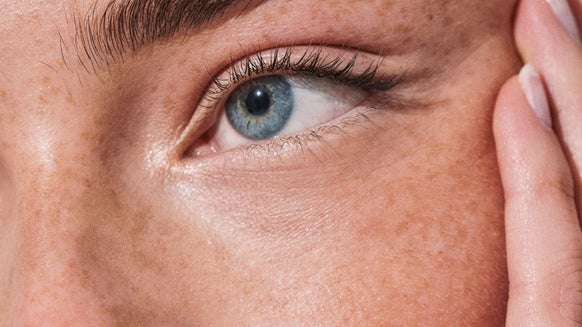
A Beginner’s Guide to Different Types of Skincare Products, From a Dermatologist
